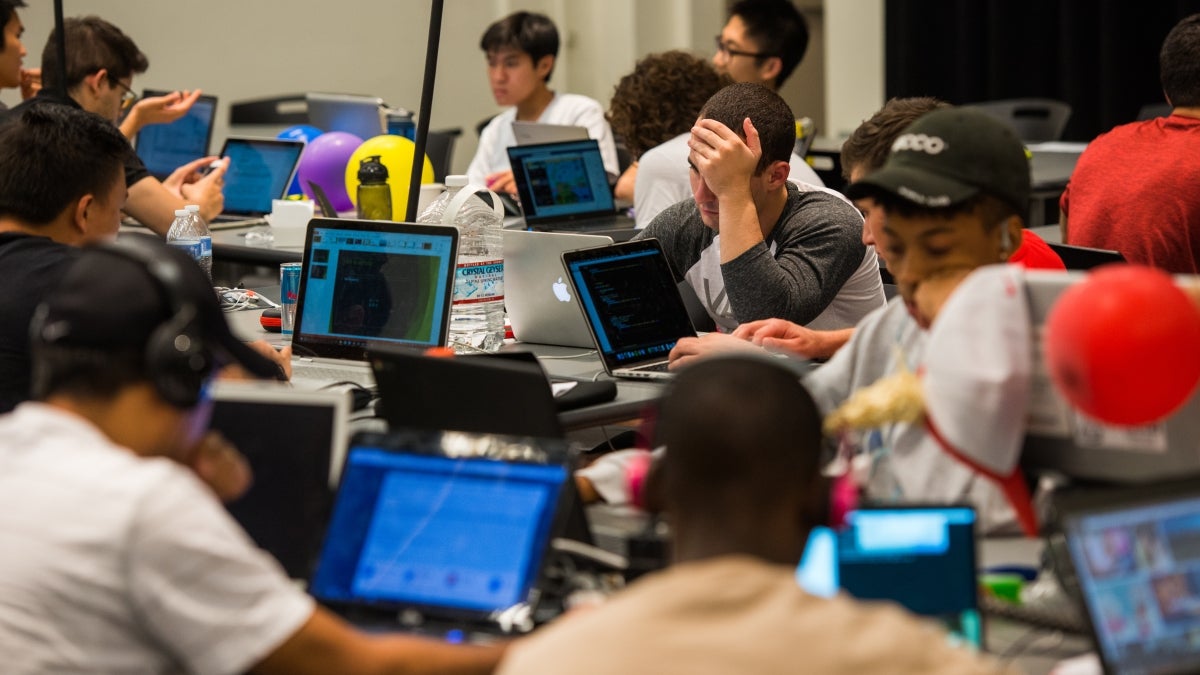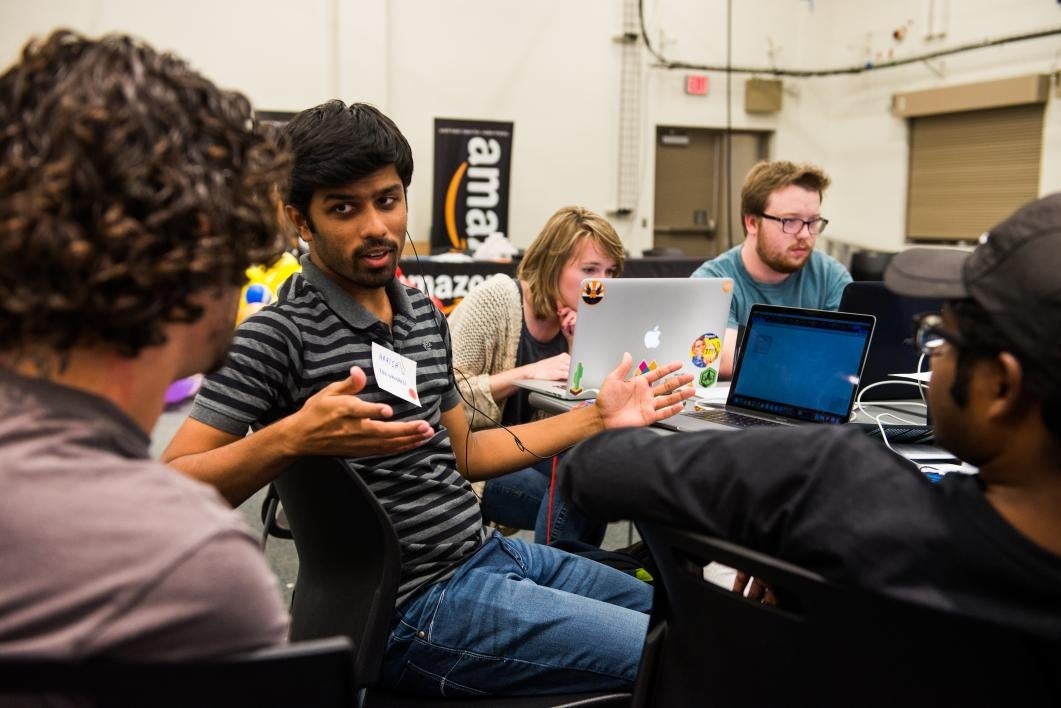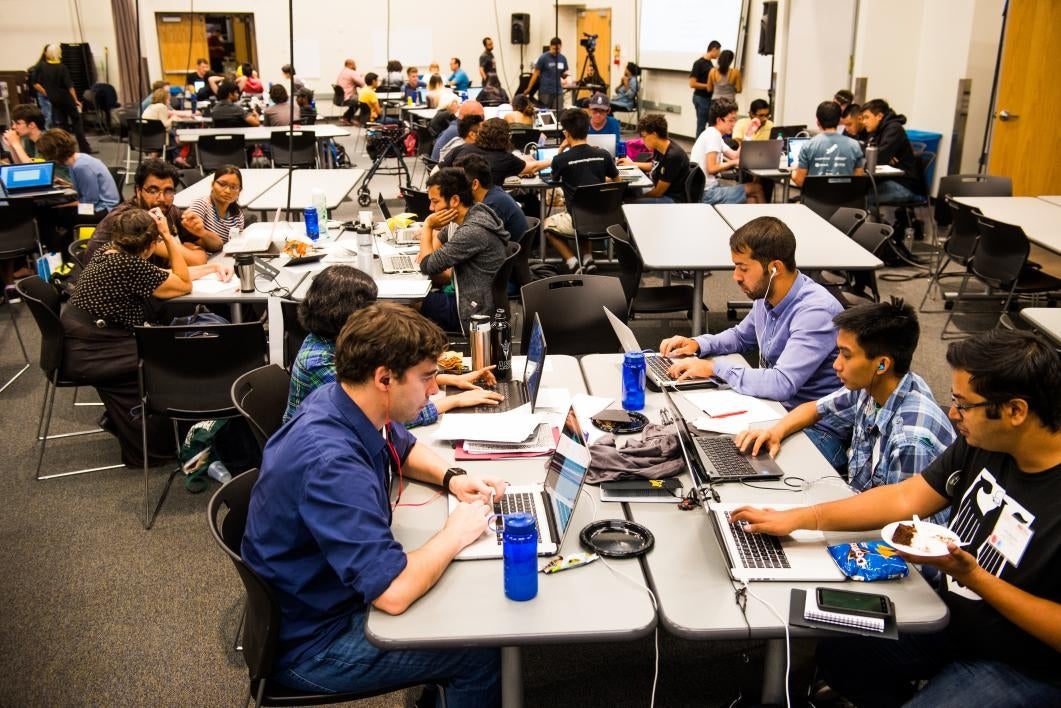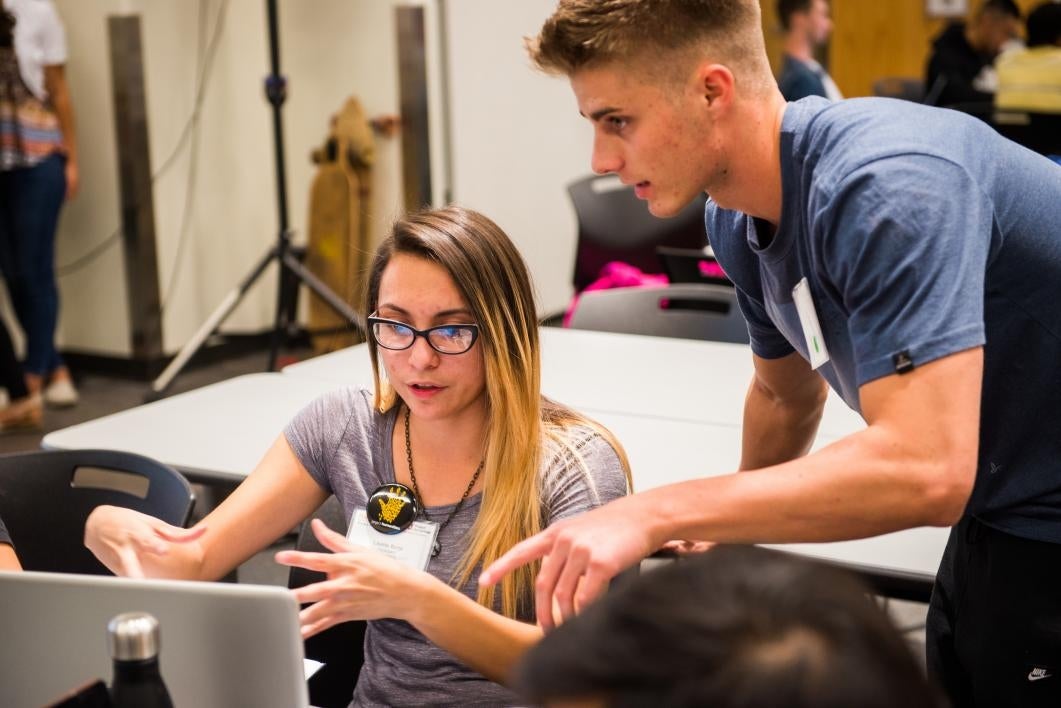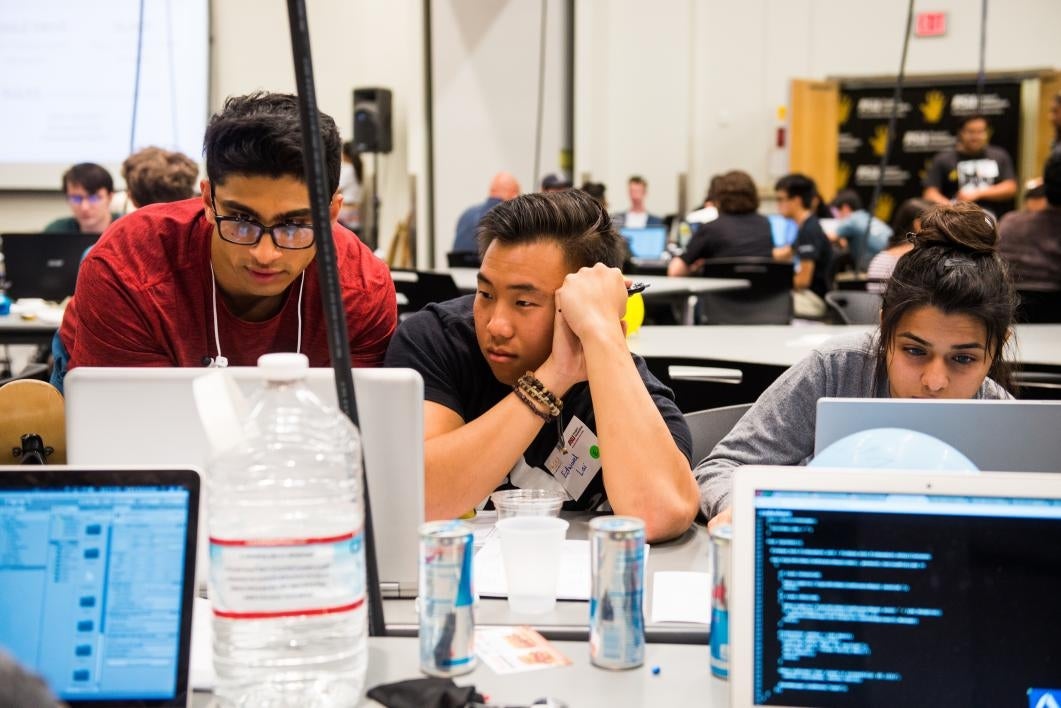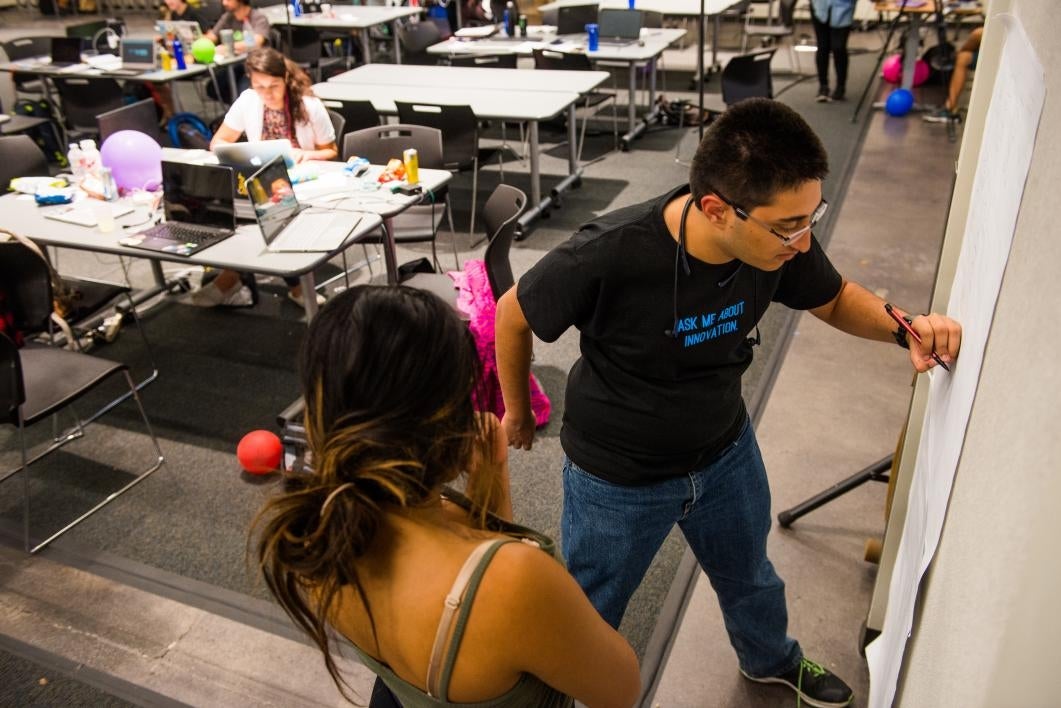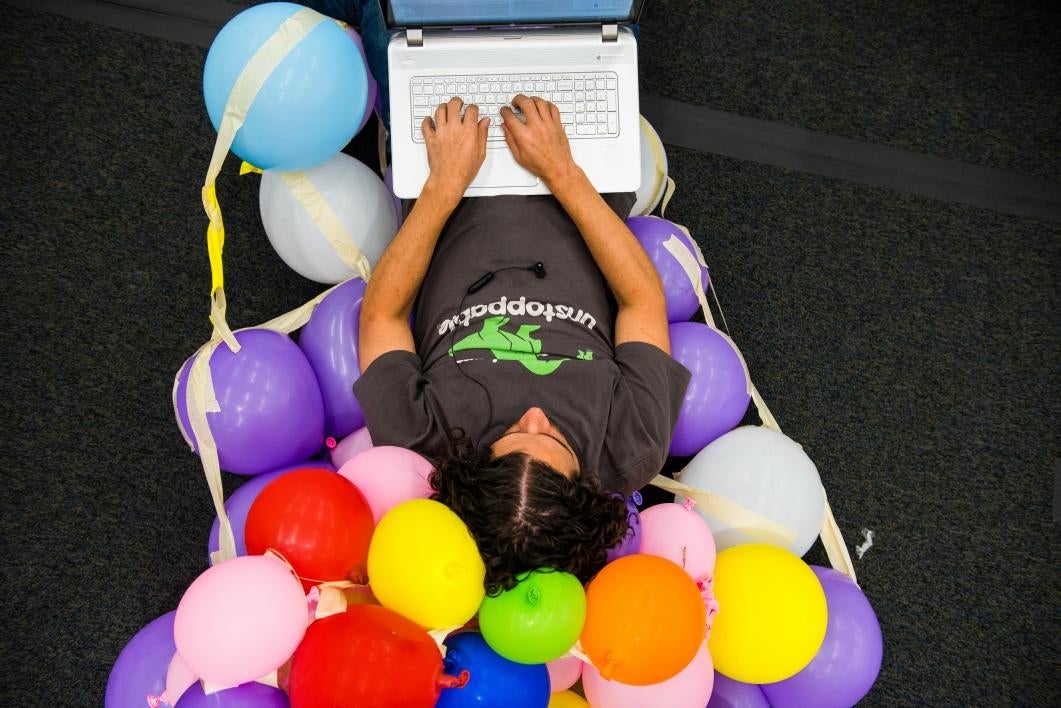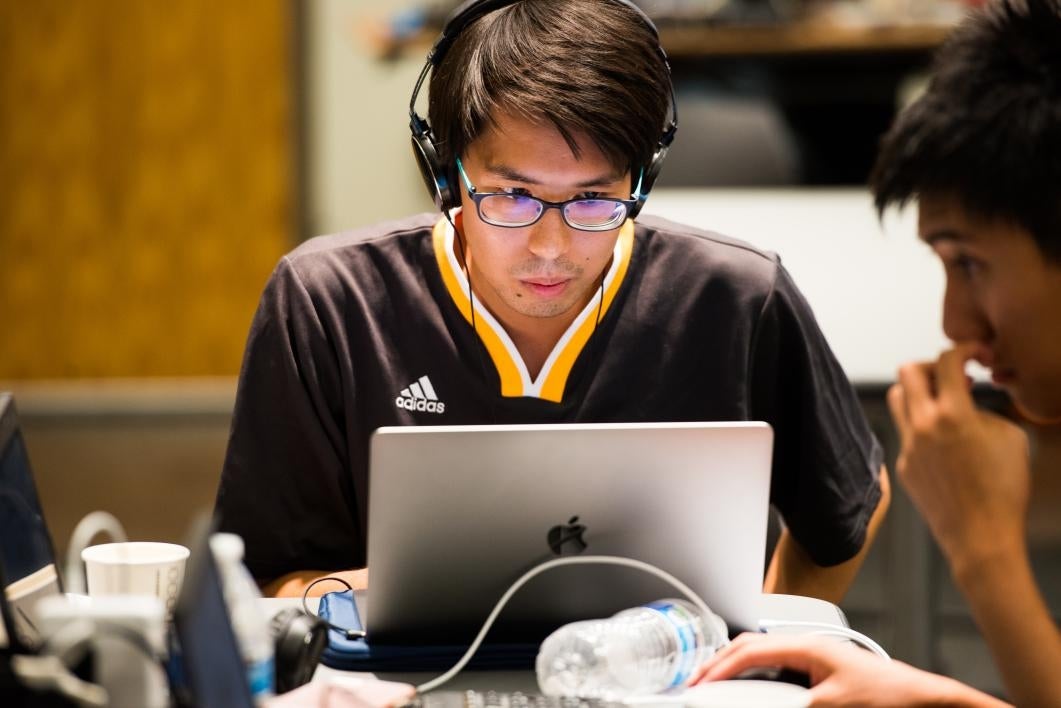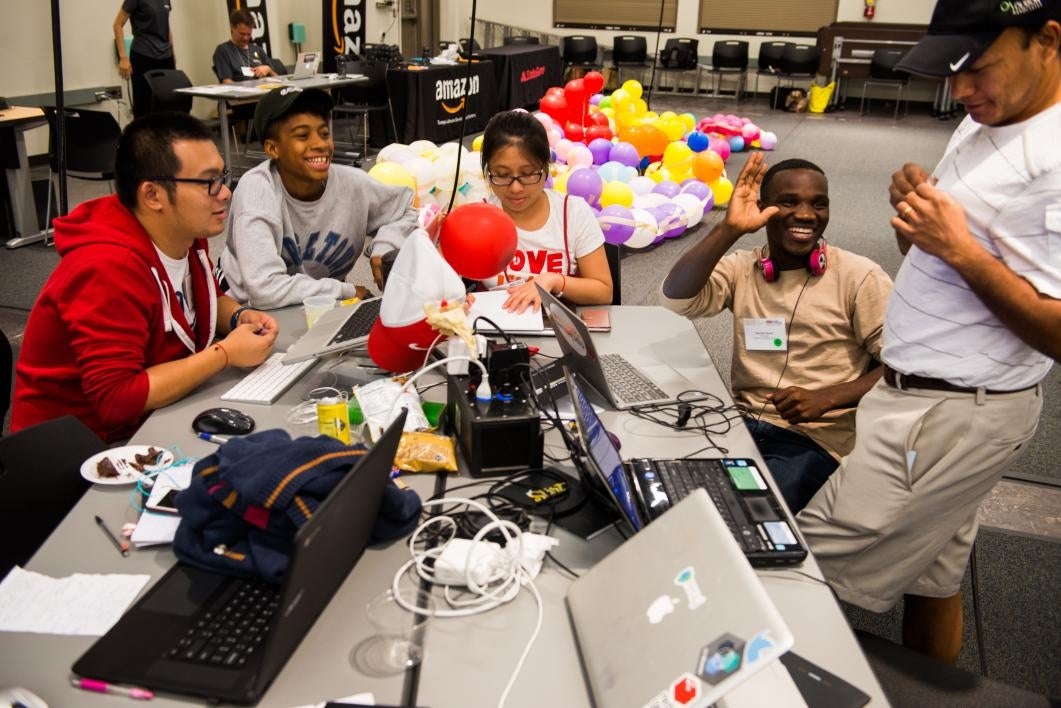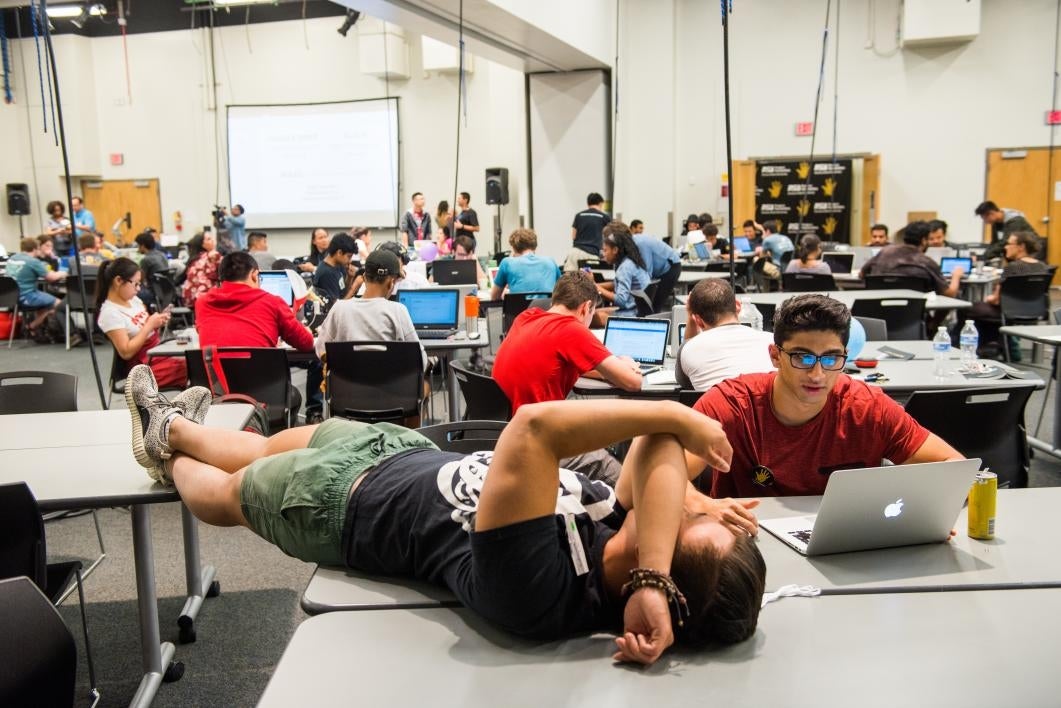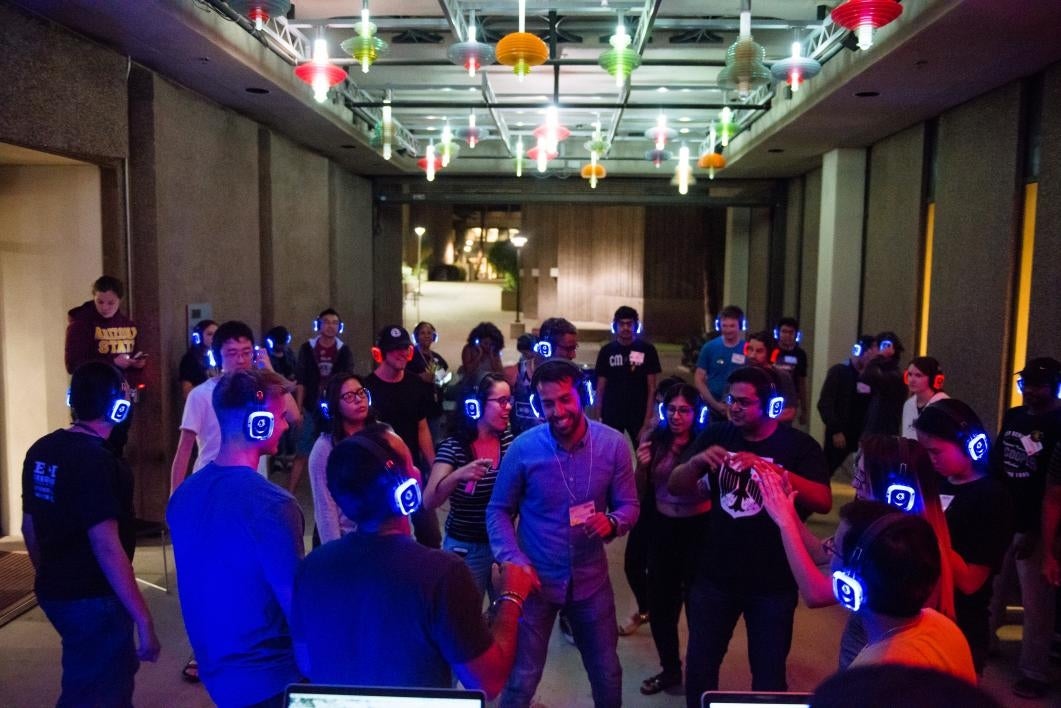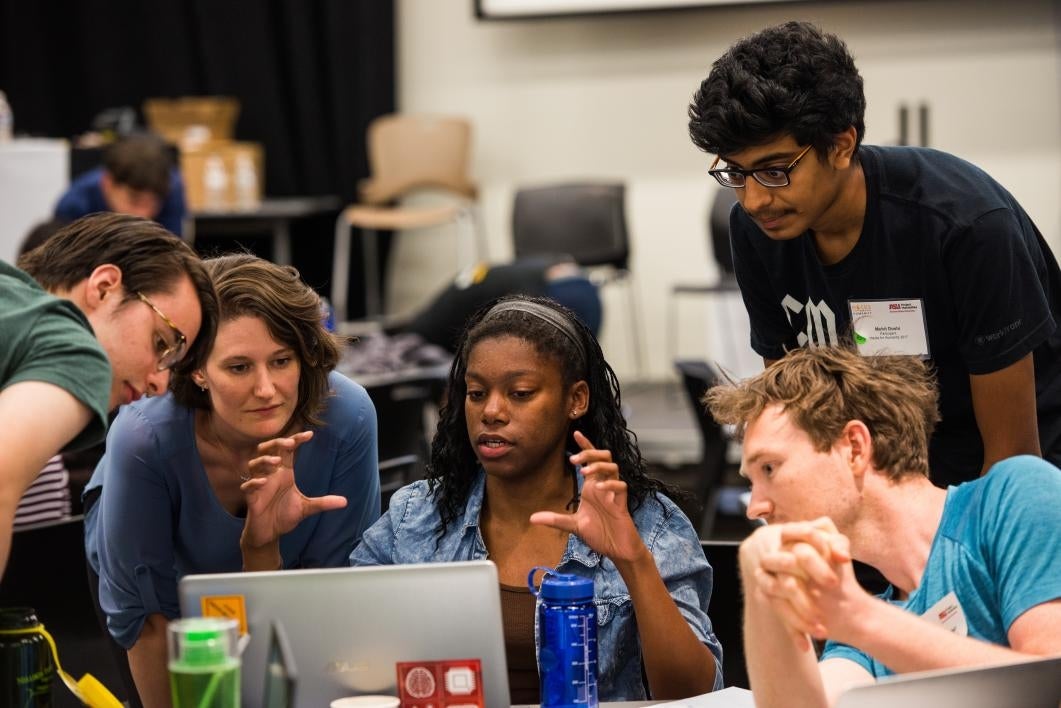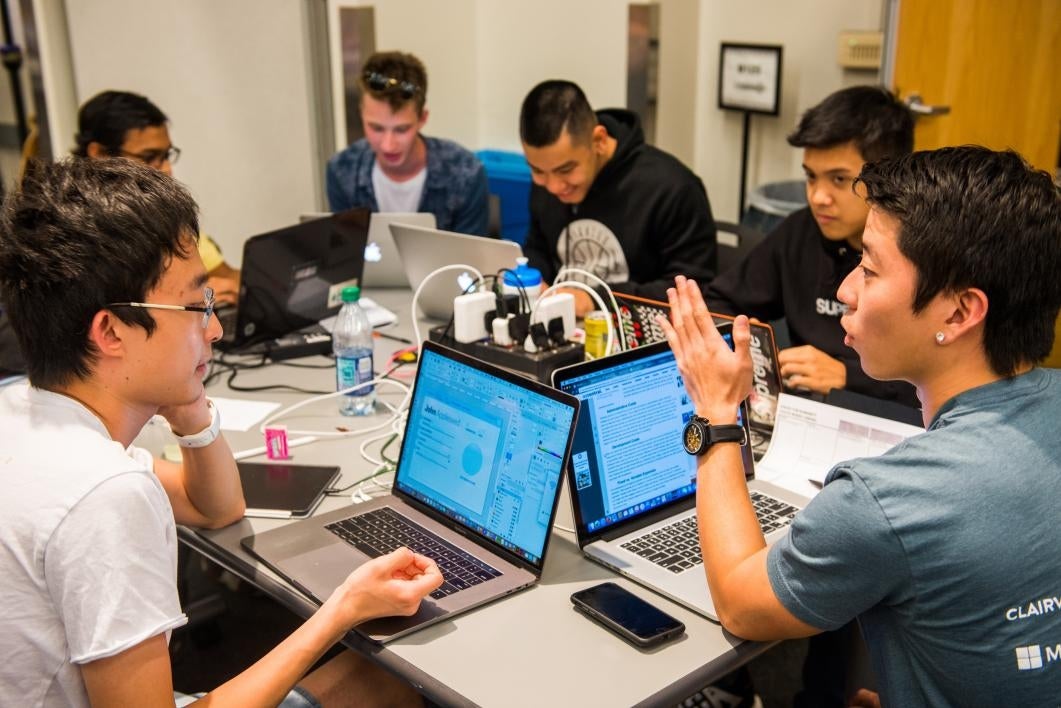When people think of hackers, a picture of someone slumped over a computer in a dimly-lit room often comes to mind; but who knew hacking skills could be used for good?
A 36-hour hackathon at Arizona State University, Hacks for Humanity, encouraged participants to do just that. Oct 7–8, teams of hackers from all over the world gathered together, utilizing their technology and teamwork skills to create apps and websites to better the community.
“After talking with people that have been to other hackathons, they say ‘most people come with an idea, they come with a team pre-built, and they’re just there to compete,’” said Anie Miles, a faculty associate for the Graphic Information Technology program at ASU. “Here, part of the process is building the team, and those are some of the skills you take away from it.”
By including participants from theater to business backgrounds, the Project Humanities-sponsored event shattered the myth that hacking is exclusively for coding and developing experts. Teams needed to not only develop a technology from scratch, but present it in a creative and innovative way, requiring the insight of all participants.
From an app to help users track volunteer hours to a website that encourages mentoring and companionship with people with special needs, the hackers' ideas were creative and varied. Ultimately, a team that created a volunteer matching app called "Envolve" took home first place.
Top photo: Particpants work on their ideas during ASU's Hacks for Humanity event Oct. 7–8.
More Science and technology

Indigenous geneticists build unprecedented research community at ASU
When Krystal Tsosie (Diné) was an undergraduate at Arizona State University, there were no Indigenous faculty she could look to in any science department. In 2022, after getting her PhD in genomics…

Pioneering professor of cultural evolution pens essays for leading academic journals
When Robert Boyd wrote his 1985 book “Culture and the Evolutionary Process,” cultural evolution was not considered a true scientific topic. But over the past half-century, human culture and cultural…

Lucy's lasting legacy: Donald Johanson reflects on the discovery of a lifetime
Fifty years ago, in the dusty hills of Hadar, Ethiopia, a young paleoanthropologist, Donald Johanson, discovered what would become one of the most famous fossil skeletons of our lifetime — the 3.2…
